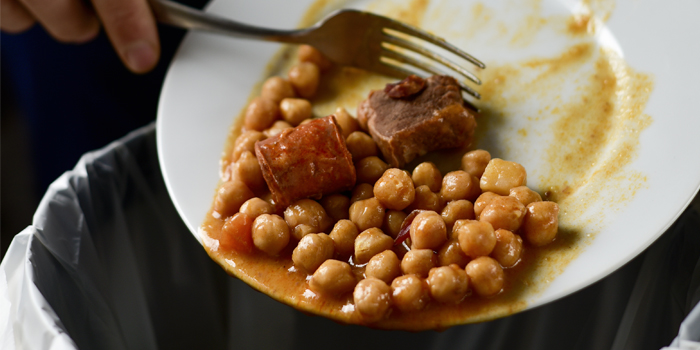
Muscat: Even as figures show that food worth millions of rial is being wasted during Ramadan, shoppers in the Sultanate have been asked to buy only what they need.
“According to a research, nearly OMR54m worth of food is wasted in Oman every year. The study conducted by the Sultan Qaboos University showed that an average Omani household wasted about a third of the food prepared. be’ah, while conducting a study of the municipal waste composition estimated that an average of 27 per cent of the total municipal waste generated in Oman was food waste,” Mohammed Al Harthy, Executive Vice President Strategic Development at be’ah, said.
“We noted that the amount of food wasted is huge. This is due to our food habits. We tend to fill up our plates and exaggerate the amount of food served during social events,” an official from be’ah observed.
Urbanisation and the dramatic increase of population in the Sultanate are generating more waste, including organic waste, Al Harthy explained.
Each year, a dramatic increase in food waste is witnessed during Ramadan due to lavish grocery shopping, as residents stack up unnecessary items that they may not need later. In response to this trend, be’ah has run campaigns during Ramadan to educate people on buying only food items that are necessary.
“We see an increase in food wastage during Ramadan due to various reasons. Therefore, we have conducted several campaigns during the year to educate people about the concept of reduction and to effect behavioural changes in their food shopping habits, especially during Ramadan,” the official mentioned.
“be’ah’s facilities are equipped with systems that register the type and quantity of waste entering the facility daily. Once we complete the waste management service takeover of the entire Sultanate, we will be able to get the exact data not only on the amount of food waste generated, but also the reasons for their increase or decrease, and if food waste increases during specific months. With the service takeover, be’ah is very much focussed on increasing public awareness about the concepts of reduction and reuse through various campaigns on social media, school programmes, and door-to-door activities,” Al Harthyemphasised.
According to the study, 27 per cent of the waste generated was food, followed by plastic (21 per cent) and cardboards (10 per cent). Reports have indicated that the food waste in Gulf Cooperation Council (GCC) countries is one of the highest in the world.
Food waste is generated from various sources such as household kitchens, restaurants, hotels, shopping malls, fruits and vegetables markets, food industrial processing companies and catering businesses, Al Harthy remarked.
Based on a study that was conducted in 2016 by be’ah, 30 per cent of the food waste received at Barka landfill was received from commercial and industrial areas in Muscat and South Al-Batinah.
Significant amount of food waste is generated in hotels, restaurants and catering business units. Hotel bosses noted that the initiative to address this problem must come from the authorities concerned,as well as hotels.
“We see less food wastage as most of our guests are staying in hotel apartments and have food outside. However, whenever we have excess food, it is mostly recycled to our staff cafes. Therefore, our wastage is minimal,” Michel Mandrea, general manager at Coral Muscat Hotel and Apartments,maintained. “Also, I think the government can try and involve companies to collect food and recycle it, so that it remains fresh and healthy, and then distribute it to the poor or people who need it. I think if this practice is started in countries around the world, it will be helpful to the poor.”
A Sales and Marketing Manager at a leading hotel noted: “It is high time some charity focusses on collecting food that is wasted at hotels and restaurants in Oman. People in the GCC have the habit of piling up their plates and not eating anything if the taste isn’t that great. The problem is aggravated at weddings and parties where food is abundant and free.”